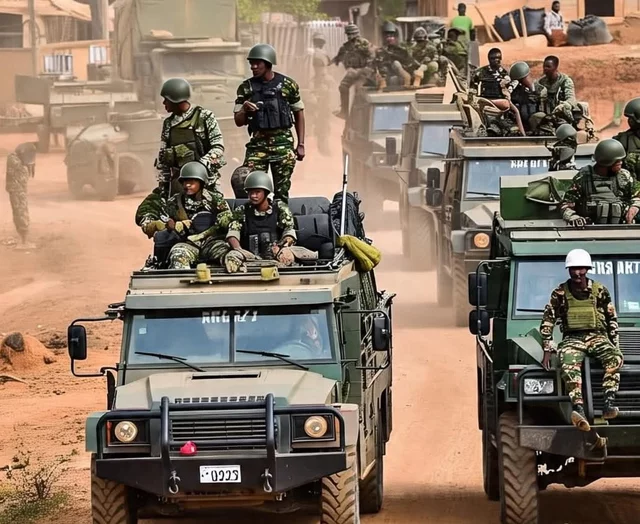Time to Draw the Line: Reassessing Nigeria’s Counter-Terrorism and Amnesty Strategy
By FrontNaija Editorial Team
The time has come for Nigeria to draw a decisive and unyielding line in its prolonged war against terrorism and insurgency. As the nation continues to grapple with security challenges across various regions, the recent resurgence of Boko Haram and Islamic State West Africa Province (ISWAP) activities in the Northeast has reignited fierce debates over the effectiveness—and the ethics—of Nigeria’s controversial amnesty and deradicalization programs.
For years, the Federal Government has pursued a soft-landing policy for so-called “repentant” terrorists, offering surrendering insurgents rehabilitation, vocational training, and reintegration into society. Under the Operation Safe Corridor initiative, thousands of former fighters have passed through a structured program designed to “reform” them into productive citizens. But with blood still being shed in Borno, Yobe, and Adamawa states, Nigerians are asking a critical question: Is this strategy working—or has it failed the victims, the soldiers on the frontline, and the nation at large?
A Questionable Return on Investment
Critics argue that the program, while noble in concept, has yielded dangerously ambiguous results in practice. Allegations have surfaced that some of the reintegrated fighters have returned to their old ways, slipping back into terror cells with insider knowledge and a renewed zeal. Communities already devastated by insurgent violence have expressed fear and resentment over being forced to accept former killers as neighbors. Many of these communities have yet to receive adequate support, even as the state prioritizes the comfort and “rehabilitation” of those who once terrorized them.
Meanwhile, the Nigerian Armed Forces—stretched thin and under-resourced—continue to bear the brunt of combat, facing deadly ambushes and improvised explosive devices (IEDs) while “repentant” terrorists enjoy what appears to be government-sponsored reintegration. This perceived imbalance has further strained morale within the military and among affected civilians.
The Moral Dilemma
At the heart of the issue lies a moral contradiction. Can a government truly protect its citizens while showing leniency to those who have destroyed lives and property? What message does this send to law-abiding Nigerians who have suffered immense losses? Where is the justice for the thousands of widows, orphans, and displaced persons left in the wake of Boko Haram and ISWAP atrocities?
This is not a call for vengeance, but for accountability. There must be a clear distinction between surrender and impunity. Rehabilitation should not come at the expense of justice, nor should it eclipse the need for reparations and support for victims of terrorism.
A Call for Recalibration
It is time for a comprehensive reassessment of Nigeria’s counter-terrorism architecture. The government must develop a more transparent and balanced approach—one that prioritizes security, justice, and genuine national healing. This includes:
Rigorous vetting of all “repentant” terrorists to determine their true motives and assess risk.
Specialized courts to try ex-fighters, with provisions for restorative justice in collaboration with affected communities.
Robust intelligence gathering and surveillance to monitor reintegrated individuals.
Increased support for victims of terrorism, including mental health services, compensation, and reintegration assistance for displaced persons.
A clear, consistent policy on amnesty that aligns with national security objectives and public interest.
Drawing the Line
The time for ambiguity is over. Nigeria cannot afford to send mixed signals in its fight against terrorism. The safety, dignity, and future of the nation depend on bold, decisive action that reaffirms the state’s commitment to justice, accountability, and the rule of law.
The resurgence of terror demands not just condemnation, but a recalibrated strategy rooted in truth and effectiveness—not political expediency. The line must be drawn now—clearly, firmly, and in the national interest





